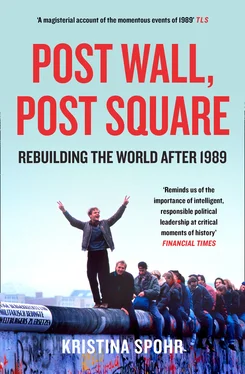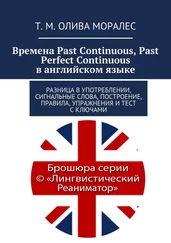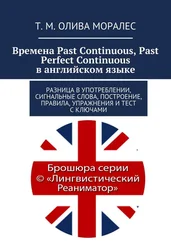The chancellor decided to confront the issue head-on in Strasbourg on 22 November at a special meeting of the European Parliament, convened to discuss recent events in Eastern Europe. In his address, he issued a clarion call that the division of both Europe and Germany be ended. Not only London, Rome, Dublin and Paris belonged to Europe, he declared, but also Warsaw and Budapest, Prague and Sofia. And, of course, Berlin, Leipzig and Dresden. German unity could only be achieved within this larger, pan-European process of unification: ‘In a free and united Europe, a free and united Germany.’ ‘Deutschlandpolitik’ and ‘Europapolitik’ were, Kohl said, ‘two sides of the same coin’.[70]
Kohl had made a point of asking Mitterrand to attend his speech. When the president did so, it was taken as a clear endorsement of what the chancellor was saying. For Kohl, Strasbourg proved a great success. At the end the European Parliament passed an almost unanimous resolution (only two MEPs out of 518 voting against) saying that East Germans had the right to ‘to be part of a united Germany and a united Europe’.[71]
The German chancellor had spoken to Europe and gained its approval. And with Bush not particularly fazed about the matter, leaving the initiative to Kohl, there was hope that at a later point even Thatcher might be brought into line with the help of the Americans, if not the French and the EC. None of this, however, could obscure the fact that at home pressure was mounting on Kohl to spell out clearly and openly how he intended to achieve German unification – because so far the chancellor had been distinctly circumspect about the specifics. And he was being buffeted from all sides.
Among the many voices who demanded that the chancellor come out strongly for unification was Rudolf Augstein, editor of Der Spiegel . In his magazine on 20 November he wrote a column entitled ‘ Sagen, was ist ’ (‘To say what’s what’). Augstein could barely conceal his impatience. Rather than hiding behind talk about European unity, he argued, the Kohl government should face up to the truly popular desire for German unity. The question that should be addressed was not if, but how, unification could be made to happen.[72]
Similarly outspoken for unity was Alfred Herrhausen, head of Deutsche Bank, an advocate of European economic integration and also an adviser to the chancellor. In an interview he pointed out the reality that as soon as foreign investment was allowed in the GDR, the West German economy would very quickly swallow up that of the East. Referring to an idea currently being floated about possible GDR membership in the EC, Herrhausen said that, as a banker, he thought it desirable in the short term but, speaking as a German citizen, he would definitely not want to forgo the historic opportunity for unity. That, for him, seemed to supersede everything else.[73]
Yet Kohl was also under pressure from those who did not believe in unification.
Günter Grass, the leftist author and public intellectual, came out strongly against the idea of ‘a conglomeration of power’ in the heart of Europe, calling instead for ‘a confederation of two states that have to redefine themselves’. In other words, he wanted a ‘settlement’ between West and East. The past was dead, he insisted. ‘There is no point in looking back to the German Reich, be it within the borders of 1945 or 1937; that’s all gone. We have to define ourselves anew.’[74]
Oskar Lafontaine of the SPD, Kohl’s direct rival for the chancellorship, also took a diametrically opposite position from the chancellor. Amid the turmoil before the fall of the Wall, he had warned of the ‘spectre of a strong fourth German Reich’ that was ‘scaring our Western and no less our Eastern neighbours’.[75] And on 8 November, after Kohl lauded unity through self-determination, Lafontaine blasted the goal of a unified nation state as ‘wrong and anachronistic’.[76] Once the borders were open Lafontaine denigrated the heady, almost delirious, atmosphere as ‘national drunkenness’ and, hard-nosed, asked whether it was right that all East German citizens who came west should simply get access to the FRG’s social security benefits. Mindful of the impending Federal elections, he was trying to play on the anxieties of West Germans – who, according to Gallup polls, were prepared to help East Germany financially but without tax rises for themselves.[77]
Particularly striking was the denunciation of unification from Egon Bahr, who in the 1960s had designed Neue Ostpolitik based on the idea that ‘change through rapprochement’ would pave the way to unity. Before 9 November he had said that people should stop ‘dreaming or nattering on about unity’.[78] And he had rejected the priority given to the ‘lie’ of unification – spluttering that it was ‘poisoning’ the atmosphere and causing ‘political pollution’. Afterwards he took a cautious line, keener on a slower approach to unification and hiding behind Lafontaine.[79]
Within the SPD, only Willy Brandt, Bahr’s old patron, spoke out for unity. It would be inconceivable, he declared, to ‘batten down the hatches in the West’.[80] German unity was now only a question of time and it should not come only after Europe’s unity had already been achieved. In this way Brandt distanced himself from the Lafontaine–Bahr line in his own party but, more generally, those on the left who privileged a pan-European framework, or Gorbachev’s ‘Common European Home’, within which Germany could unite.[81] He also set himself apart from Genscher’s ‘Europa-Plan’, tossed out in October, which airily suggested that the East Europeans, including the GDR, would be integrated into the EC, at the same time as Brussels kept marching towards monetary and political union.[82]
And so, ironically on the issue of German unity, the position taken by Lafontaine and Bahr was closer to that of the GDR’s political opposition (and even reformers within the SED) than to the stance of their own Federal government in Bonn. Indeed, the writers and clergy representing the opposition in East Berlin called on 26 November for the independent self-sufficiency of the GDR, believing that they still had the chance, as ‘equal neighbours to all European states to develop a socialist alternative to the FRG’.[83]
Kohl and Teltschik were particularly troubled by a statement from the East German prime minister, Hans Modrow, in his first ‘government declaration’ on 17 November. He promised secret multiparty elections for 1990 as well as a root-and-branch overhaul of the command economy, but not an outright shift to the market. Modrow said he was confident that decisive change in East Germany would end ‘unrealistic and dangerous speculation about reunification’. He proposed that a stabilised GDR was a prime condition for wider stability in Central Europe, even across Europe as a whole. In this vein, looking to Bonn, he declared that his government was ‘ready for talks’ to put relations with West Germany ‘on a new level’. His aim was a ‘treaty union’ which would build on the complex of political and economic treaties of Ostpolitik and Osthandel that had been signed by the two states over the previous few decades.[84]
Modrow had made the first official statement from either the FRG or the GDR on how to move forward on relations between the two Germanies. He had beaten Kohl to it and, furthermore, clearly sought to stall the drive towards unification. West German criticism of the chancellor became more strident. The editor of Die Welt asked on 19 November, ‘Are we letting others dictate the blueprint for unity?’[85] And the co-founder of the extreme-right Die Republikaner party Franz Schönhuber saw in Kohl’s silence the chance to raise his party’s profile, putting top of the list in his election programme ‘reunification’ and ‘regaining’ the Eastern territories.[86]
Читать дальше












